Get Free Program Info
Brochure, application tips, open house invites, deadline reminders, and more!
We respect your privacy. Submitting this form constitutes your express written consent to receive emails, phone calls, text messages and/or other media from Johns Hopkins University at the phone number(s) or email(s) received, including a wireless number(s). These emails, texts, calls, or other media may be generated using automated technology. You may opt out of receiving any of these communications at any time. You are not required to provide this consent to receive services from Johns Hopkins University.
Cutting-Edge Research
Housed in Johns Hopkins’ Laboratory for Computational Sensing and Robotics (LCSR)
No App Fee and No GRE to Apply!
Apply by January 15 for Fall ’26
Work for Top Companies
Grads go on to Google, Boston Dynamics, Amazon Robotics, NASA, and more of the world’s most innovative organizations.
Automatic Fellowship Consideration
No additional material required to qualify
Two Pathways. One Goal. Master Robotics.
Whether you want a coursework-focused experience or a blend of research and practical application, the Robotics MSE program provides a rigorous foundation while letting you tailor your studies to your interests.
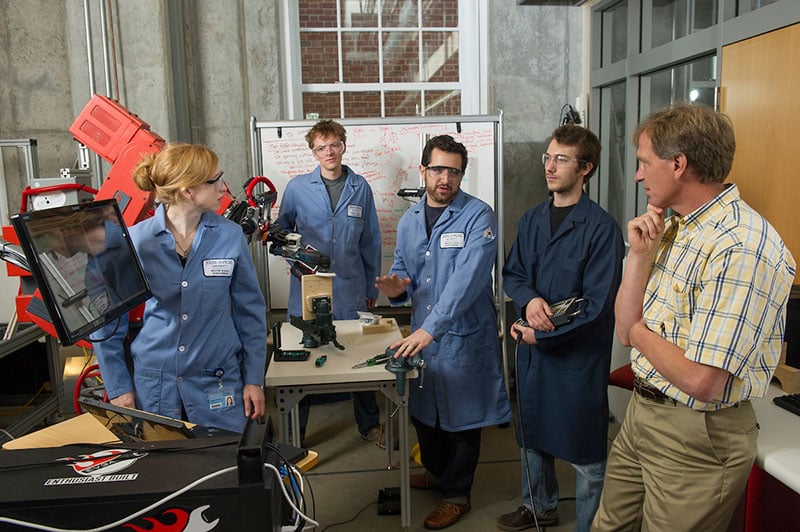
Coursework Option
Take 10 graduate-level courses in robotics fundamentals, algorithms, perception, planning, and control.

Research Essay or Internship Option
Take eight courses and complete either a research-based master’s essay or an approved internship with a final report.
All students also complete two core courses: Algorithms for Sensor-Based Robotics and Robot Devices, Kinematics, Dynamics, and Control.
About the Laboratory for
Computational Sensing and Robotics
The Laboratory for Computational Sensing and Robotics (LCSR) is the hub for robotics research at Johns Hopkins, uniting faculty, students, and global collaborators to address the field’s most pressing challenges.
From surgical robotics and human-machine collaboration to systems for extreme environments and biorobotics, researchers here are advancing technologies that link computation and action to improve health, safety, and quality of life.
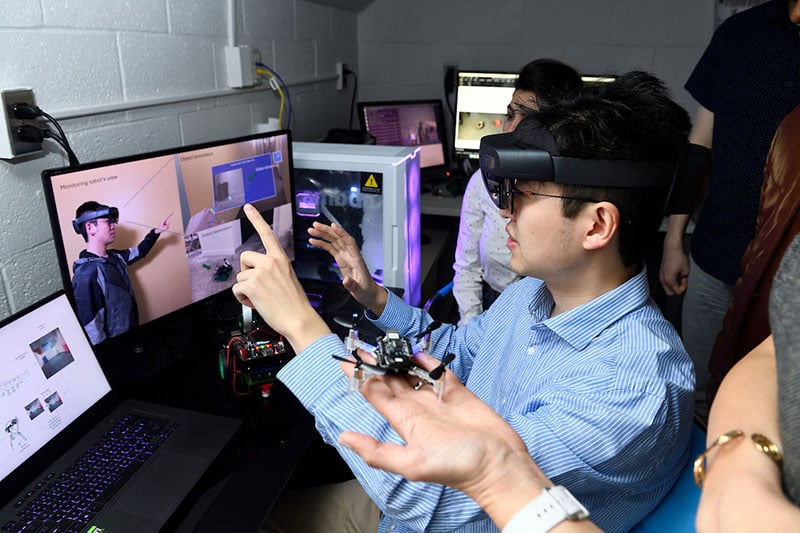
Based in Hackerman Hall on the Homewood campus, LCSR is one of the world’s largest and most advanced robotics research centers—offering students unmatched opportunities to learn, innovate, and push the boundaries of robotics.
What Sets Johns Hopkins Robotics Apart
No matter what path you choose to complete your master’s degree, you have the option to concentrate your coursework in a specific area and explore a variety of specializations in Mechanical Engineering—all guided by collaborative and supportive faculty.
A World-Class Hub for Robotics
Study at the Laboratory for Computational Sensing and Robotics, one of the top robotics research centers worldwide.
Specializations That Fit Your Goals
Choose from six tracks: Automation Science and Engineering, BioRobotics, Control and Dynamical Systems, Medical Robotics, Perception and Cognitive Systems, or General Robotics.
Faculty at the Forefront of Innovation
Choose from six tracks: Automation Science and Engineering, BioRobotics, Control and Dynamical Systems, Medical Robotics, Perception and Cognitive Systems, or General Robotics.
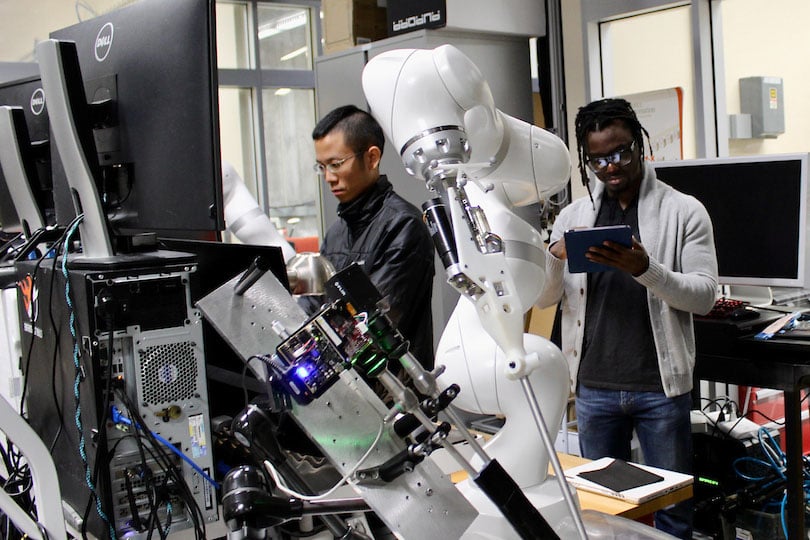
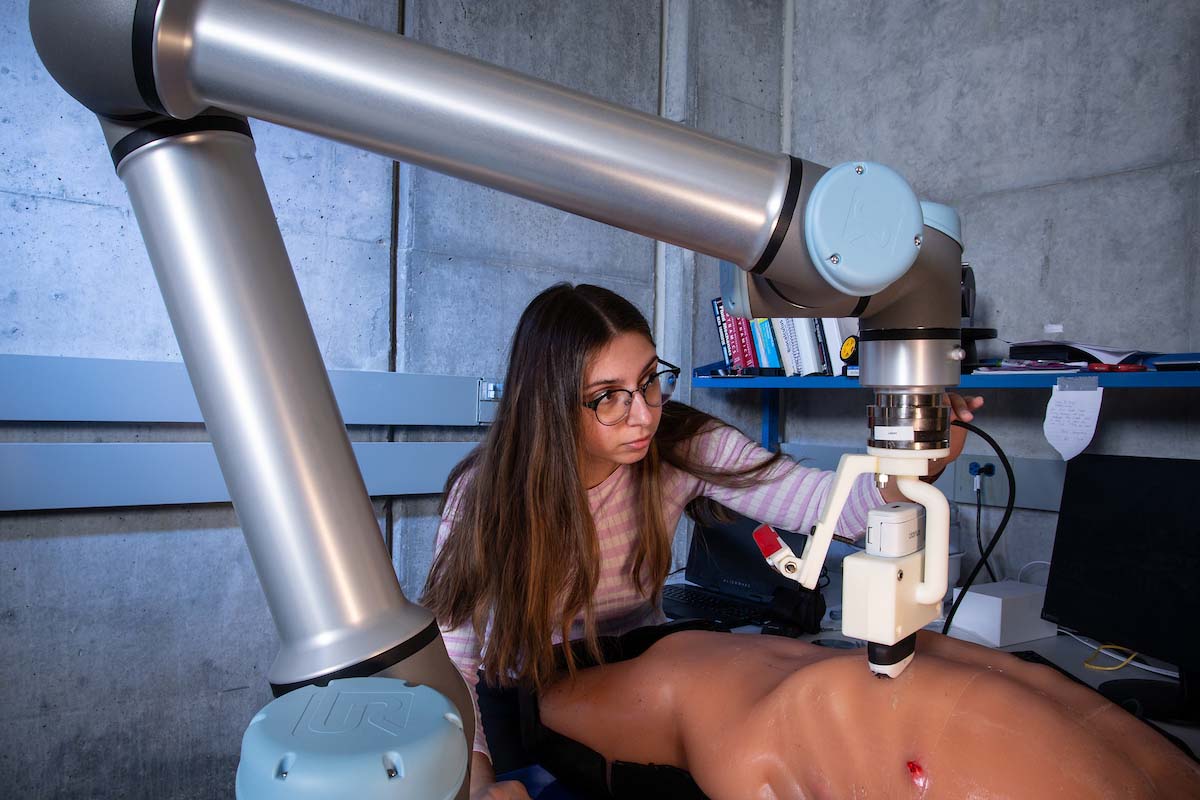
Automatic Fellowship Consideration
Pursuing a master’s degree is a big decision. That’s why we offer fellowships to outstanding master’s applicants through the Department of Mechanical Engineering.
All applicants are automatically considered for our fellowships, and no additional material is required when you apply.
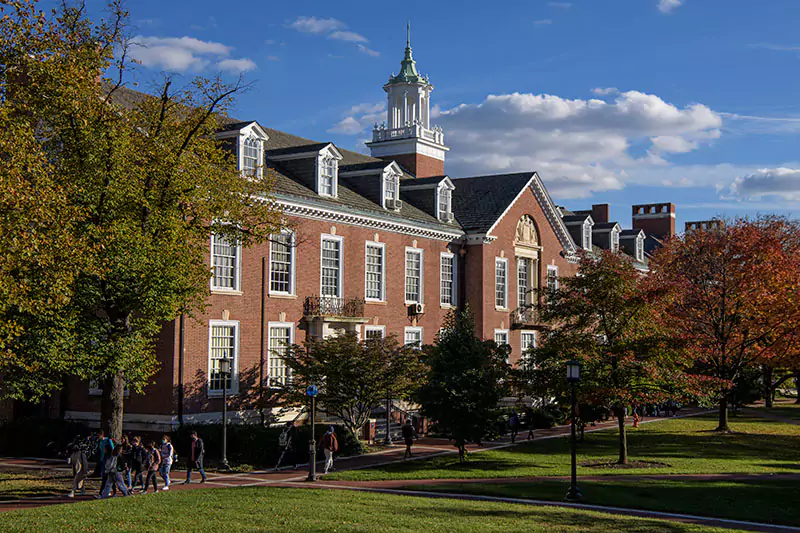
Learn from Faculty
Conducting Pioneering Research
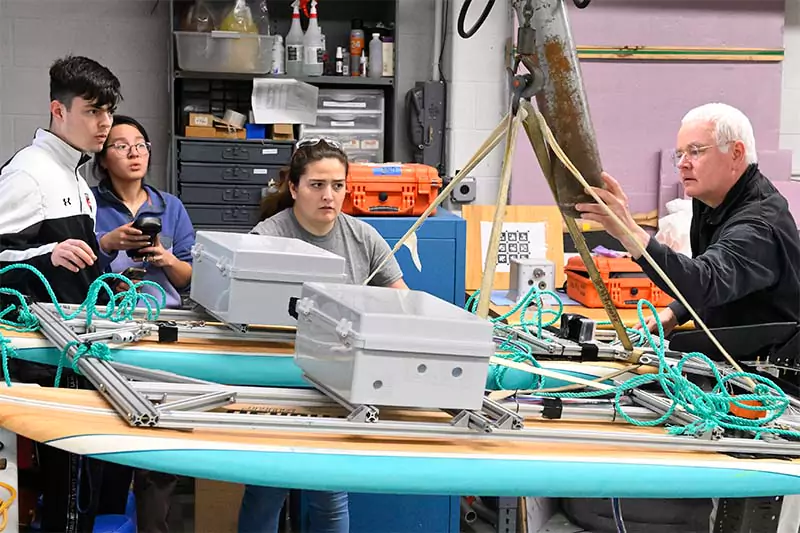
Known for his work on space and underwater robotics, Professor Louis Whitcomb holds 15 patents. His lab works on underwater vehicles for oceanographic science missions, including the Nereus hybrid underwater vehicle that dove to the bottom of the Mariana Trench
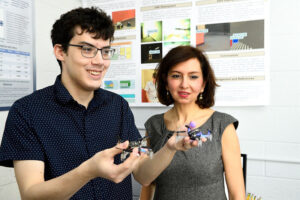
In her Energy Efficient High Performance Computing Lab, Associate Professor Tinoosh Mohsenin (right) focuses on signal processing and machine learning, with an emphasis on aerial and ground autonomous systems, human and machine teaming, smart health and cyber physical systems.
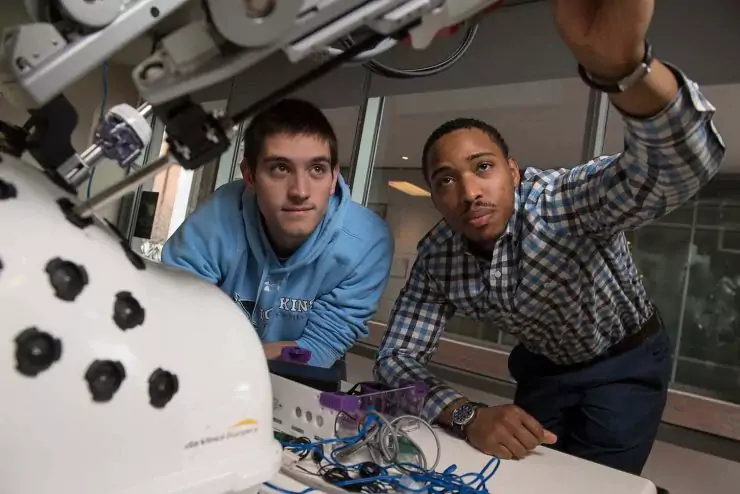
At the intersection of engineering, biomechatronics, medicine, perception, and psychophysics, Assistant Professor Jeremy Brown develops novel haptic interfaces for upper-limb prostheses, minimally invasive surgical robotics, and rehabilitation robots.
See Where a Johns Hopkins
Graduate Degree Can Take You
From the first supersonic ramjet engine to speech recognition software to cancer genome decoding, Johns Hopkins Engineering innovations contribute to the common good—and so will you!
Join us in our unwavering spirit of discovery with a Master of Science in Engineering in Mechanical Engineering.
Request Free
Program Info
We respect your privacy. Submitting this form constitutes your express written consent to receive emails, phone calls, text messages and/or other media from Johns Hopkins University at the phone number(s) or email(s) received, including a wireless number(s). These emails, texts, calls, or other media may be generated using automated technology. You may opt out of receiving any of these communications at any time. You are not required to provide this consent to receive services from Johns Hopkins University.

© 2025 Johns Hopkins University. All rights reserved.
Contact Us
Johns Hopkins Whiting School of Engineering
3400 North Charles Street
Baltimore, MD 21218

